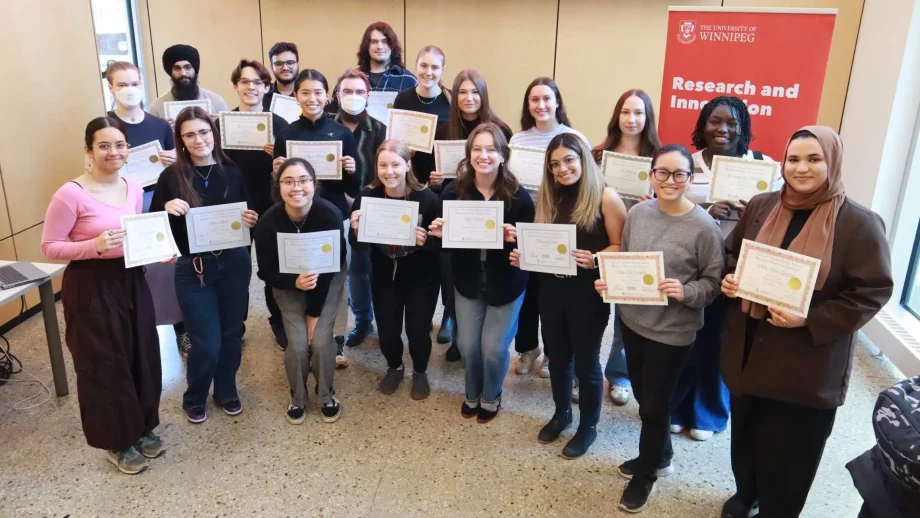
Dr. Alberto Civetta and his graduate student research team (right to left) Suzanne Gomes & Jennifer Ferguson
WINNIPEG, MB – New research at The University of Winnipeg has found evidence that problems in gene expression (the amount of message made by a gene) in sterile male hybrids from crosses between species can be caused by factors other than sterility itself. This new finding, by UWinnipeg’s Biology Professor Dr. Alberto Civetta, entitled Rapid male-specific regulatory divergence and down regulation of spermatogenesis genes in Drosophila species hybrids was published today in the prestigious scientific journal PLOS ONE.
“Understanding how biological species diversify and remain isolated from each other is core to biology and understanding biodiversity,” explained Civetta. “It is known that when males and females of closely related species hybridize, they produce sterile male offspring (such as a sterile mule hybrid male from a cross between a donkey and a horse).”
Civetta’s lab study used genetic tools to create fertile hybrid males and compared levels of sperm genes expression between parents, sterile hybrids and fertile hybrids. The research shows that fertile hybrids have levels of sperm gene expression similar to sterile hybrids. The under expression of sperm genes shared between fertile and sterile hybrids can be explained as driven by rapid changes accumulating between two species’ divergent DNA, when brought together in a hybrid.
This is an exciting discovery because previous studies have used results showing lower amounts of sperm development genes expression in interspecies sterile hybrid males than parental species to support the role of sperm development genes in the creation of different biological species. The findings by Civetta’s team made up of two UWinnipeg graduate students, published in PLOS ONE, cast doubts on such connections.
PLOS ONE is one of the most prestigious open access journals that publish general science. The published paper can be found at http://dx.plos.org/10.1371/journal.pone.0061575




